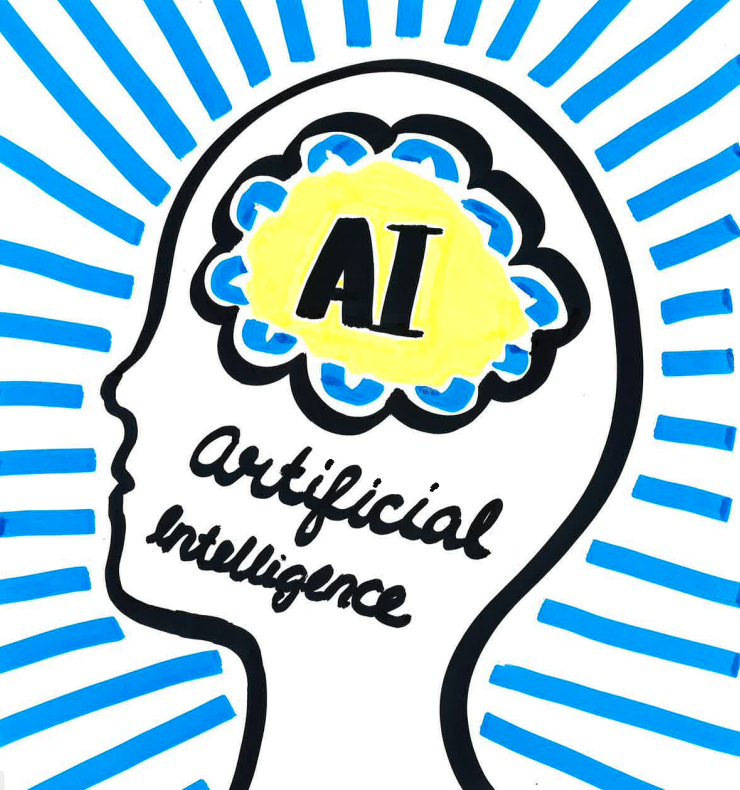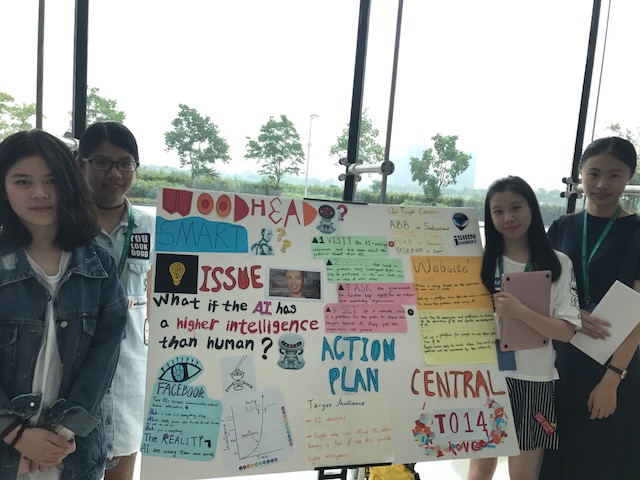Artificial Intelligence: Beneficial or Detrimental? A Chinese Perspective
Discover the pros and cons of exploiting Artificial Intelligence (AI) in China.
Humanity is the key to innovation. However, what would happen if technological creations became the new frontier of the future? Would the world develop at a quicker rate, or would the possibility of artificial intelligence overpowering humanity halt the progress in AI innovation? Tom Tom students and JEA journalism students from all over China teamed up in Shanghai, China to attend the JEA 2017 Duke Kunshan University of China Convention and create a consensus on supporting or refuting the development of AI worldwide.
A majority of students were concerned about the potential threat to low income jobs. Basic AI can perform at the same level as most blue collar workers, such as street maintenance and food services, and has even become a tutor for online courses.
“Nowadays, machines are very threatening to workers,” Yulin student Xiaohui Wang said. “I also think it will bring new opportunities through needs for new jobs for artificial intelligence.”
To solve this problem, students suggest that the government issue welfare to such workers in order to keep them off the streets, however this solution will only result in higher taxes. Unfortunately, there seems to be no way around the issue of unemployment.
Since creation and experimentation with AI is a growing interest to scientists worldwide, communication is vital to sustain consumer interest, education and trust in these products. Apple users are familiar with Siri, a virtual mobile assistant that can perform basic tasks on iPhones. Due to widespread communication of updates, progress and marketing of Apple products, Siri is a trusted AI device. New artificial intelligence should be advertised in ways similar to Siri so that consumers trust the product and do not fear the rising intelligence rates of technology.
Many students from China believe that the best way to express the benefits of AI to the public is through live debates on television, which would allow the topic to be addressed by the general population.
Another idea to promote AI is to create open seminars with AI demonstrations and hands on activities. These events would introduce new technology to the public and allow audience participation.
Changsha student Wen Jie Li thinks that education is the best way to promote AI.
“Education focuses on the next generation and the future is dependent on it,” Li said.
The most popular idea among students is to create a website with easily accessible information and tutorials on AI and its benefits.
Although these ideas are possible, most experimentation with AI takes place outside of the US and is most prominent in Japan, so it may not be a huge concern among the public at the present moment. In the future, America may also face the growing concern surrounding AI. For now, education and communication are vital for the successful application and integration of new artificial intelligence into daily life.
For more information on artificial intelligence or to view student presentations from Duke Kunshan University of China, click on the photo slide show below. All information in this article is documentation of the Duke Kunshan JEA 2017 convention students.



